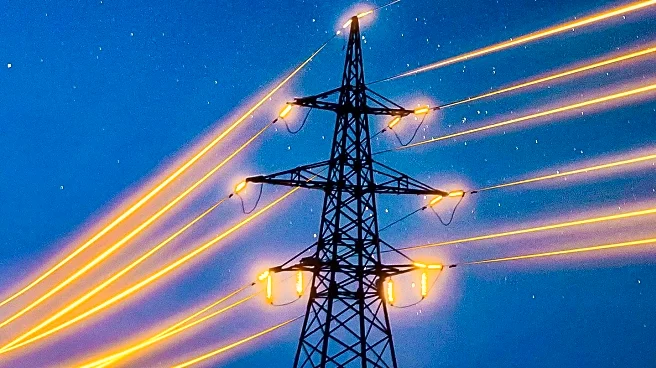What's Happening?
As electricity prices continue to rise, consumers are seeking ways to manage their energy bills effectively. With the arrival of autumn, many are putting away air conditioners, but the challenge of keeping
energy costs within budget persists. Simple strategies such as turning off lights when not in use, closing blinds during peak sun hours, and unplugging electronics can significantly reduce energy consumption. These practices not only help in saving money but also contribute to reducing carbon emissions, thus aiding environmental conservation. The use of smart light bulbs, which can be programmed to turn on and off at specific times, is recommended for further energy savings.
Why It's Important?
The rising cost of electricity is a concern for many households, impacting budgets and prompting a search for cost-saving measures. By adopting energy-saving habits, consumers can mitigate the financial burden of high utility bills. Additionally, reducing energy consumption plays a crucial role in environmental protection by lowering carbon emissions associated with electricity generation. This dual benefit of financial savings and environmental impact makes energy conservation a significant issue for both individual households and broader societal efforts to combat climate change.
What's Next?
Consumers are likely to continue exploring energy-efficient technologies and practices as electricity prices remain high. The adoption of smart home devices and energy-efficient appliances is expected to grow, driven by the need to manage costs and environmental concerns. Utility companies may also offer incentives for energy conservation, encouraging more households to adopt these practices. As awareness of energy conservation increases, it could lead to broader policy discussions on sustainable energy practices and infrastructure improvements.
Beyond the Headlines
The emphasis on energy conservation highlights the intersection of economic and environmental priorities. As consumers become more conscious of their energy usage, there may be increased demand for renewable energy sources and sustainable practices. This shift could influence market trends, driving innovation in energy-efficient technologies and potentially reshaping the energy sector. The cultural shift towards sustainability may also impact consumer behavior, leading to more environmentally responsible choices in various aspects of daily life.









